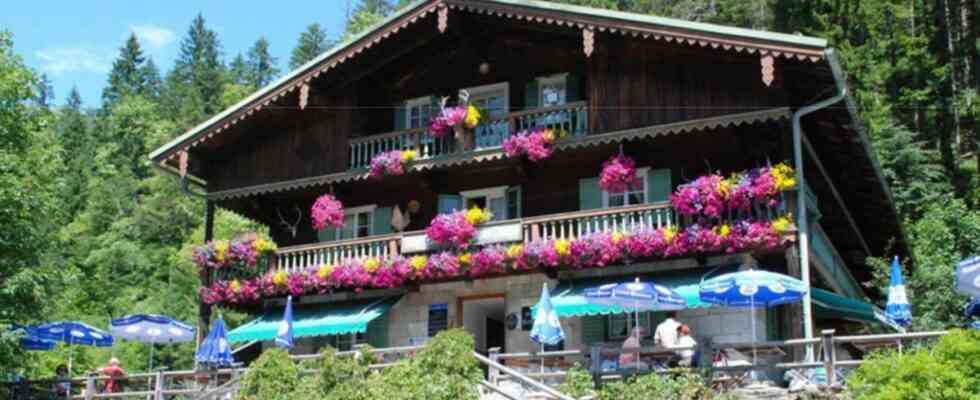Back there in Valepp, the days at the end of March can still be considered winter. The fact that the valley in the Schliersee mountains between the Spitzingsee and the Tyrolean Inn Valley can easily be reached by car at this time is certainly not a sure thing. The road from Spitzing has been closed to private traffic for nearly 40 years, and the narrow toll road leading up from Lake Tegernsee can be blocked by avalanches well into spring. The bus runs the round only from May to October. Nevertheless, a whole series of people have made it up to the Valepp these days to have a say about the future of an important monument. The Forsthaus Valepp should once again become the mountain inn it was until 2014. Under what conditions and whether it should also be open in winter in the future is controversial.
The state forests, which manage the ensemble for the Free State, searched in vain for a tenant for a long time after the inn closed in 2014. Guests have not been allowed to stay overnight there for a long time. Because no tenant could be found for the monument, which was quickly emptied, the forestry company Schliersee advertised the forest house as an investment property with leasehold rights. The prospect of acquiring practical ownership rights to the Forsthaus for many decades then seemed more attractive – among others to the hotelier Johannes Rabl, who runs the Lieberhof and the Leeberghof on Tegernsee and who works with FC Bayern goalkeeper Manuel Neuer, who also lives in Tegernsee the Forsthaus Valepp founded a FoHaVa GmbH & Co. KG.
The news that the municipal council in Schliersee had dealt with Rabl’s plans shocked the Bund Naturschutz (BN), the association for the protection of the mountains and the regional association for home care. They fear that the Forsthaus could become an exclusive event location, which has long been typical of Lake Tegernsee. A monument of such importance must remain public, the Free State should never give it into private hands, says the managing director of the state association, Rudolf Neumaier. In the summer, the BN had already called for only the regular bus to be allowed to drive on most of the toll road in order to bring peace back to the mountains. The three clubs have submitted a petition to the state parliament and opposed the plans of Rabl and Neuer with their own concept.
They also have plans to reopen the Forsthaus as an inn – but not all year round, but only in summer and not with 28 rooms for overnight guests, but with a museum use of the upper floors, where day-trippers can learn about the monument built in 1841 and its history as well as about the history of forestry and alpine farming and nature conservation. The Bavarian Cultural Heritage Foundation, which recently saved the Wirtshaus am Streichen in Chiemgau from an uncertain future, is ready to support it.
Most recently, the clubs distributed their concept at the on-site meeting, to which Ilse Aigner, President of the Landtag, had invited to her constituency. In the opinion of CSU MP Ernst Weidenbusch, Rabl “presented a very good concept” without additional individual transport and at most with electric shuttle buses. The state forests that neglected the monument fared less well. Schliersee’s Mayor Franz Schnitzenbaumer (CSU) reports that recently water even penetrated the roof. The residents of Schlierseer had requested a usage concept for Rabl’s construction plans, which Schnitzenbaumer says they are now satisfied with. Operation in winter with unsafe access falls under an entrepreneurial risk. The fact that the Forsthaus once again becomes an inn with a regional menu and not an event venue for a few can be ensured by contractual clauses with penalties.
While the clubs fear that the investment will hardly be recouped and that a different usage concept will have to be approved later, Schnitzenbaumer believes that the forest house should then revert to the Free State prematurely. The parliamentary group leader of the Greens in the state parliament, Ludwig Hartmann, who, like Weidenbusch, will have a say in the petition, sees the state forests on the wrong track. If they are not able to maintain the monument, the Free State must provide additional funds. There is no consultation date in the state parliament yet, the next step is for the building committee in Schliersee to approve Rabl’s plans. On the other hand, the regional association for home care calls for the cultural heritage foundation to be given time for a detailed concept.

